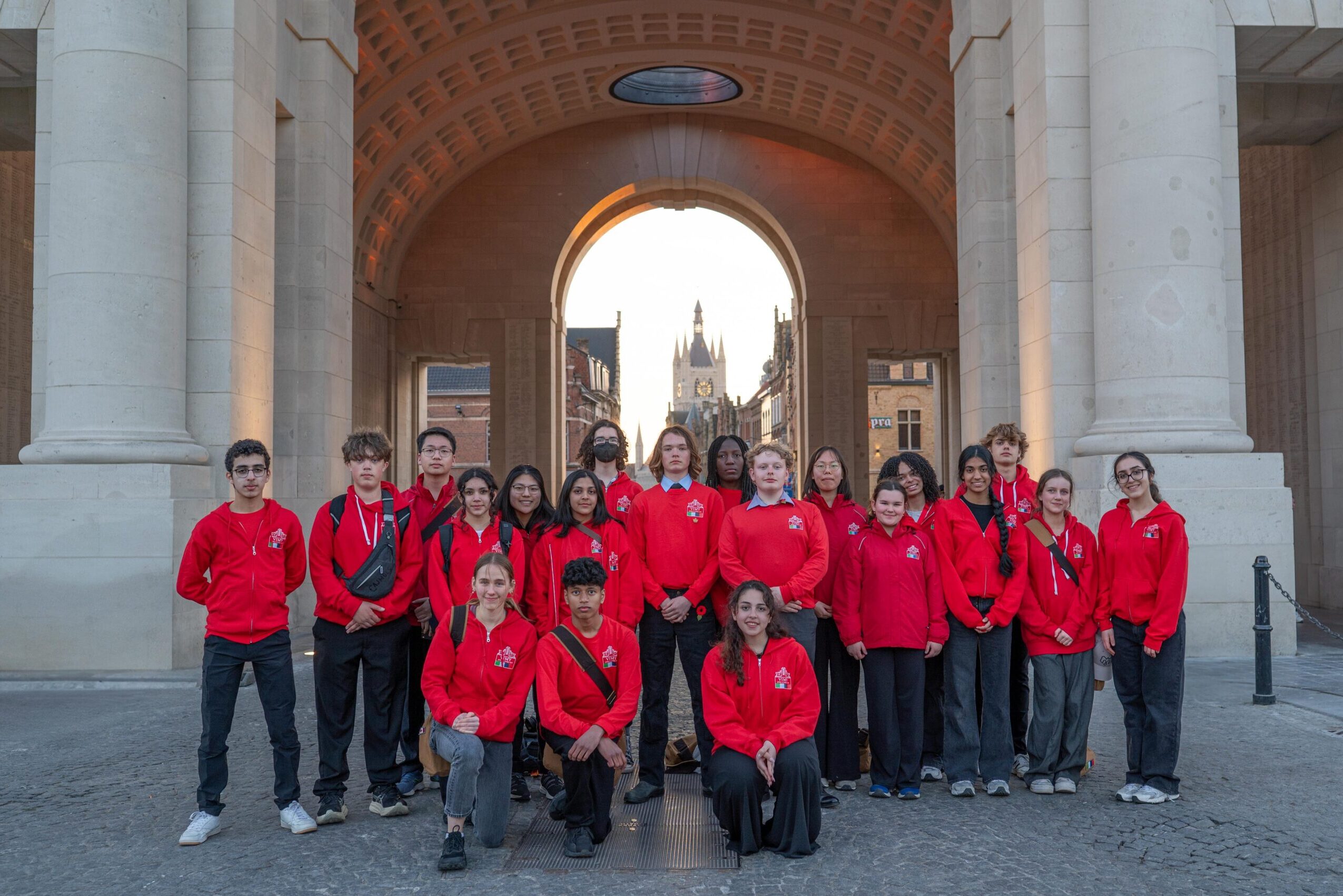Exploring history in the places where it happened
The Vimy Foundation encourages youth across Canada to apply lessons from history to their daily lives as informed, active citizens who create positive and impactful change in their communities.
For 20 years, the Foundation has offered fully-funded experiential scholarship opportunities in Europe that bring a more holistic dimension to the study of the world wars. The programs outlined below inspire youth, ages 15 to 17, to think differently about the wars by examining multiple, understudied perspectives through research projects, discussion, and critical exploration of historic sites. Participants come away with enhanced leadership, perspective-taking, and communication skills, and a more nuanced understanding of Canada’s role in major world events.

The Beaverbrook Vimy Prize brings together youth from Canada and Europe to former battlefields, historic sites, and monuments in France and Belgium, to study the interconnected history of the First and Second World Wars of their respective countries. This program has evolved over the last two decades based on the needs of the participants and based on shifts in social studies education. The 2025 edition of the program (scheduled for August), for example, will adopt an overarching environmental lens, in response to youth interest and global discourse.
The Vimy Pilgrimage Award similarly brings students from Canada to visit sites connected to the First World War in Belgium and France. Recipients are selected based on a demonstrated commitment to creating impactful change in their local communities. While exploring Canada’s involvement in the war, these young leaders also visit sites commemorating the role of other nations, encouraging them to develop a more global understanding of the conflict.
The Foundation’s newest educational program, Vimy Inspires Tomorrow, offers free, bilingual modules that enable youth to apply lessons from the First World War to develop a transformative community project. Students apply by submitting a project idea and then participate in two tailored workshops, highlighting leadership during the war and leadership and project management today. These are designed to help participants create refined, realistic project proposals. The Foundation awards three such projects a $2,500 grant to help recipients fulfill their community goals. The breadth of innovative ideas from youth across Canada is truly diverse and inspiring, ranging from issues of sustainability and food insecurity, to supporting peers with STEAM initiatives, mental health, nutrition, or developing commemorative projects, among many other themes.
Through post-program testimonials, it is clear that students develop a deeper understanding and interest in history when programs delve into human stories that represent tangible connections to the world today. This connection to the past encourages critical thinking, informed citizenry and a yearning to share newfound knowledge with peers, family, and the wider community.
